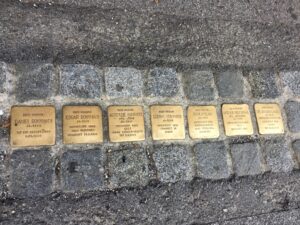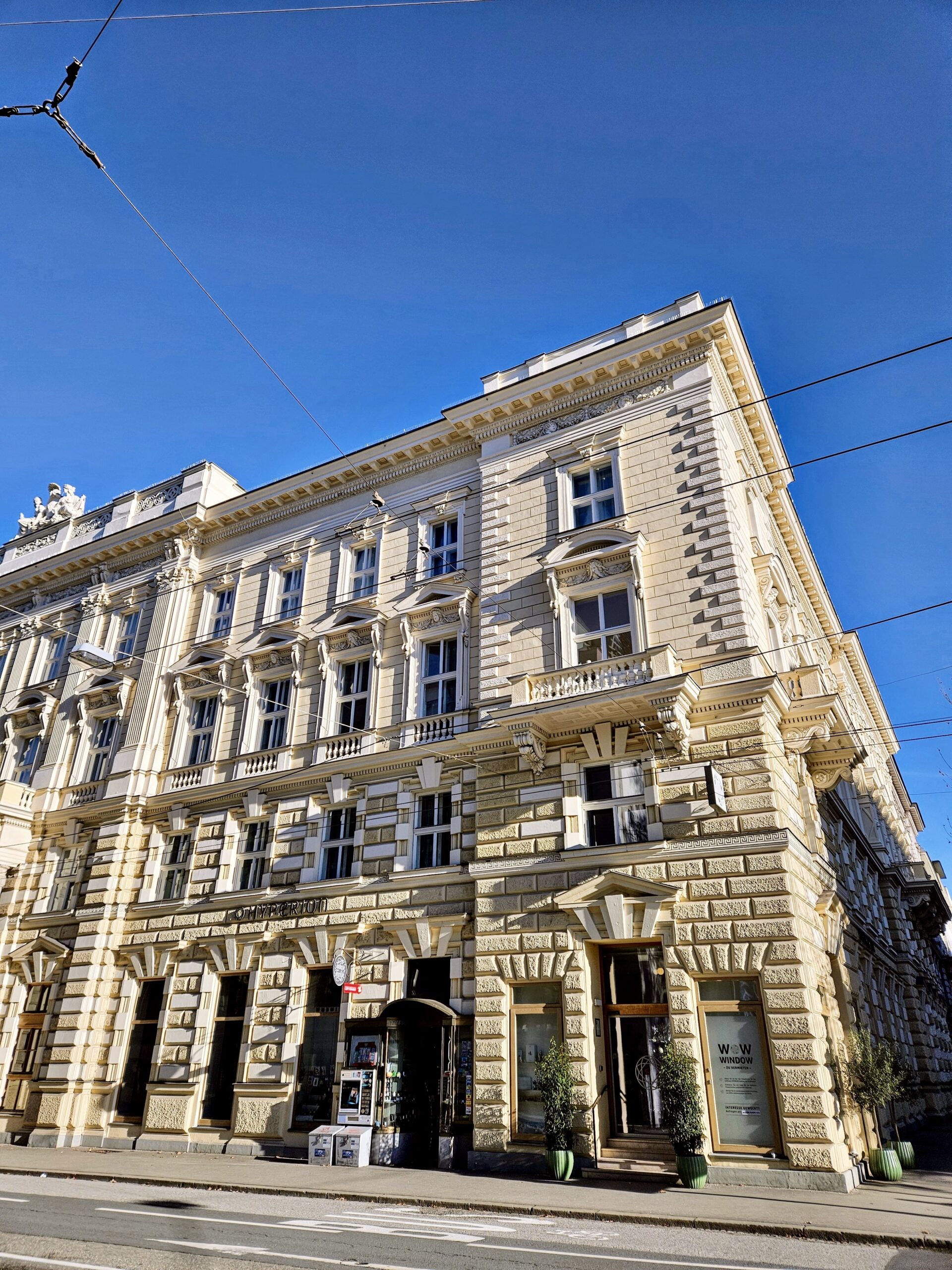Anna POLLAK was born in Salzburg on December 28, 1873. She was a daughter of Adolf and Katharina Pollak, who were among the first Jews allowed to settle in Salzburg after a new constitution for Austria-Hungary granted Jews the right to live anywhere in the Empire after 1867 (Jews had been barred from living in Salzburg ever since their expulsion in 1498).
The city police registration files indicate that the parents and their nine children, six of whom had been born in Salzburg, moved into the ground floor of 4 Rainerstraße (then called the Westbahnstraße) in 1887.
Their second hand shop at the front was taken over by their unmarried daughter Anna and she operated it until the so-called »Reichspogromnacht« known as the night of broken glass.
In the night from November 9-10, 1938 her seamstress and rummage shop was vandalized and looted by Nazi Storm-troopers and SS men led by a native Salzburg SS man named Hermann Höfle (who went on to become a major perpetrator in the Holocaust). (See the photo of her cleaning up after the devastation while two women watch).
Anna POLLAK, who had lived here for 65 years, was expelled to Vienna that same month and her last residence there was in the Second District at 18/13 Ferdinandstraße, which was a collection point for Jews about to be deported to concentration camps or places where they would be murdered.
On July 28, 1942 the 68 year old Anna POLLAK was shipped out to the Theresienstadt concentration camp on »Transport 34«, along with Amalie ROSENFELD who had also been expelled from Salzburg.
Then, on September 21, 1942, she and her cousin Anna STUCHLY1 were deported along with Amalie ROSENFELD on »Transport Bp« to the Treblinka death camp where they were all murdered.2
The grave of her parents Adolf (Aron) and Katharina Pollak is in the Salzburg Jewish cemetery in Aigen along with that of her brother Samuel.
Her brother Rudolf was a secondary school director in Vienna before his death in 1937 (his body was cremated in the Vienna Central Cemetery’s Simmering Crematorium).
Her brother Jakob was murdered in the Theresienstadt concentration camp.
The fates of their other siblings: Ludwig, Sali, Netti, Theresia, Raphael and Emma have yet to be discovered.
1 Anna’s cousin and namesake Anna Pollak was born in Salzburg on December 16, 1872. Her married name was STUCHLY and she was the daughter of her father’s brother Albert (Abraham) Pollak and his wife Karoline, who lived at 2 Rainerstraße (a Faberhaus) in Salzburg.
2 On January 11, 1943 Adolf Eichmann received a coded radio message from Salzburg’s SS Sturmbannführer [Major] Hermann Höfle giving the total number of Jews murdered in 1942 at the Lublin-Majdanek concentration camp and murder center and the extermination camps at Sobibor, Belzec and Treblinka: »… altogether 1,274,166.«
The radio message was decoded by the British secret service at the time, but was kept secret until 2000. That brought the role of Salzburg’s Hermann Höfle back into public attention (see Peter Witte and Stephen Tyas, »A new Document on the Deportation and Murder of Jews during ‘Einsatz Reinhard’ 1942« in Holocaust and Genocide Studies 15/3, pp. 468-86).
Hermann Höfle had been born in Itzling (part of the independent community of Gnigl until they were both annexed to Salzburg) on June 19, 1911 and was an auto mechanic and chauffeur in Salzburg who joined the SS.
In November 1938 he was a leading organizer of the Pogrom and one of his rewards for doing such a good job that night was his being given an apartment taken away from the Jew Adolf JACOBY at 13 Hubert Sattler-Gasse – which Höfle’s family occupied until 1946.
During the Holocaust he served as »Jewish Expert« on the staff of Higher SS and Police Leader [Brigadier General] Odilo Globocnik. Höfle was therefore the organizer and implementer of »Aktion Reinhard«, the campaign to exterminate all the Jews of the Nazi’s »General Government« of Poland — which included the major Jewish centers of Warsaw, Lublin, and Bialystok.
Hermann Höfle returned to his family in 1947 after a short period of internment by the British Army and they settled in the Parsch neighborhood. In the course of the Eichmann Trial his activities in the mass murder process were brought to public attention and Höfle was arrested.
Before he could be brought to trial he hanged himself in his cell in Vienna on August 21, 1962 (see: Winfried R. Garscha »Das Scheitern des ´kleinen Eichmann-Prozesses` in Österreich« at http://www.nachkriegsjustiz.at/prozesse/geschworeneng/hoefle.php).
Translation: Stan Nadel
Stumbling Stone
Laid 28.08.2008 at Salzburg, Rainerstraße 4




